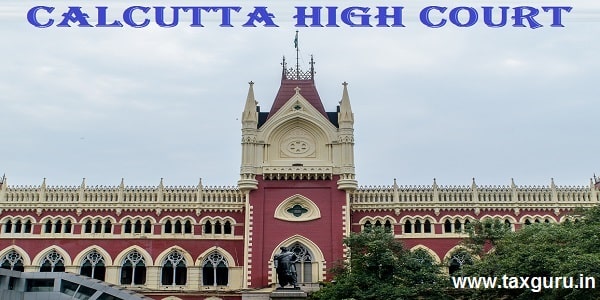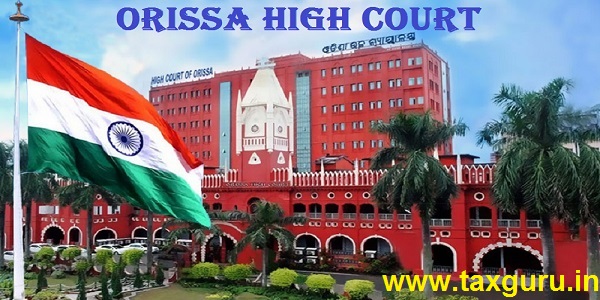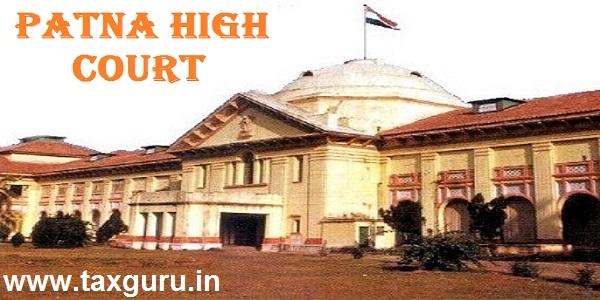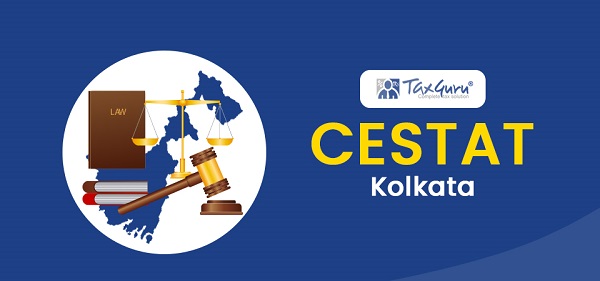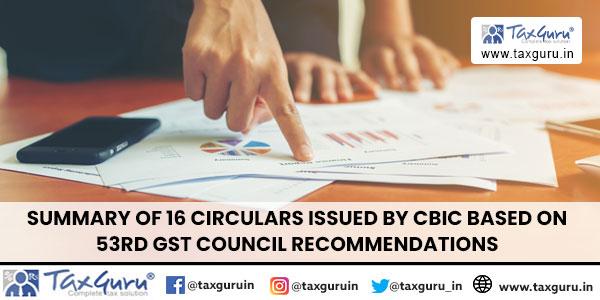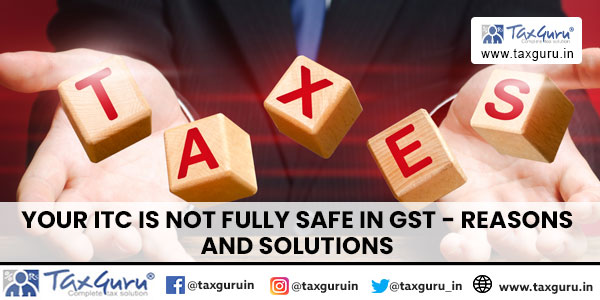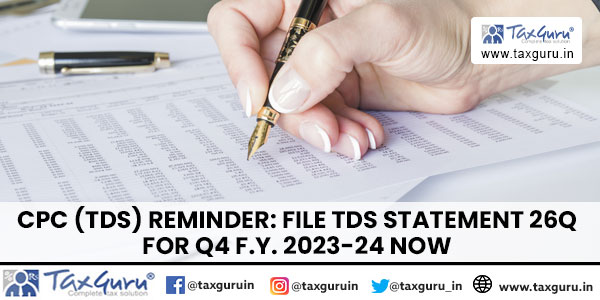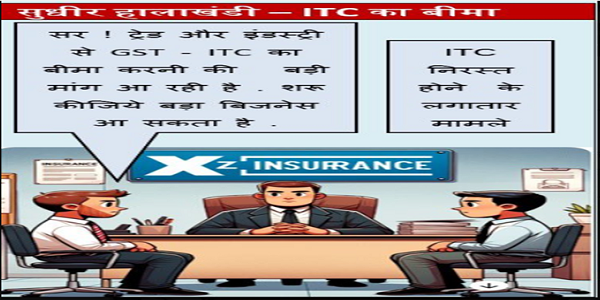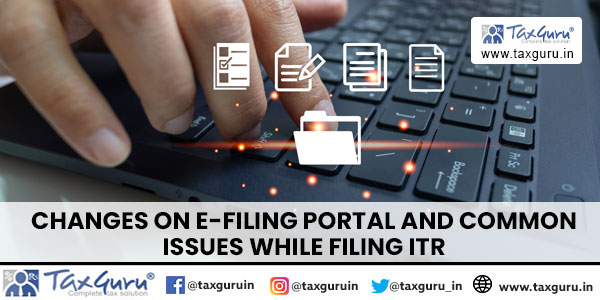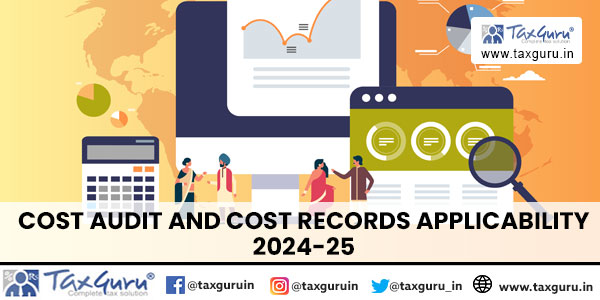Case Law Details
Hitachi Life And Solution India Ltd Vs C.C.E. & S.T (CESTAT Ahmedabad)
Introduction: The case of Hitachi Life And Solution India Ltd vs. C.C.E. & S.T (CESTAT Ahmedabad) delves into the intricacies of refund claims in the context of abatement and excise duty. In a legal battle that extended from the period of May 10, 2012, to May 14, 2012, the appellant sought a refund for Excise Duty payments made, which stemmed from a change in the abatement percentage allowed on their products, as per Notification No. 26/2012 dated May 10, 2012. The abatement percentage had shifted from 25% to 35%. During this period, the appellant continued to clear their products, specifically Air Conditioners, at the old abatement rate. Subsequently, they realized their oversight and filed a refund claim of Rs. 15,23,922/-.
The core issue revolved around unjust enrichment, and the authorities required the appellant to demonstrate that there had been no unjust enrichment as per Section 12B of the Central Excise Act, 1944. The appellant relied on a Chartered Accountant’s Certificate dated October 29, 2012, as their primary evidence.
Detailed Analysis: The Chartered Accountant’s certificate stated that the excess excise duty of Rs. 15,23,922/- had been accounted for as an advance in the unaudited books of accounts as of June 30, 2012. It further indicated that the excess duty had been recorded under the ledger account “Central Receivable” and had not been debited to “Cost of goods sold” in the profit and loss statement for the quarter ending on June 30, 2012. However, the appellant failed to provide additional documentary evidence that they had not passed on the excise duty burden to their customers who had purchased the goods from their depot.
The Commissioner (Appeals) examined the case and found that the appellant’s claim was restricted to situations where the goods were not sold but were transferred to the depot or warehouse. In such cases, the duty shown on the invoice had not been recovered from any person. However, the Commissioner (Appeals) noted that the appellant had not provided documents proving the possession of the disputed goods during the relevant period, leading to the rejection of their claim. The Chartered Accountant’s certificate was also scrutinized and found to be inadequate, as it was based solely on the management’s representation without any independent verification.
Consequently, the Commissioner (Appeals) rejected the appellant’s refund claim for lack of evidence and the various deficiencies identified in the order. Dissatisfied with this decision, the appellant proceeded to file an appeal.
In their appeal, the appellant argued that the rejection of the refund was unjust, and the Chartered Accountant’s certificate, based on their books of accounts, should have been accepted as valid documentary evidence. They reiterated that the goods for which the refund was claimed had not been sold but had been transferred to the depot for eventual sale. The duty stated on the invoice had not been recovered from any person, and the appellant had explicitly recorded the duty claim as receivable in their books of accounts. They also pointed out that the lower authorities had mistakenly equated the sale of goods on MRP (Maximum Retail Price) assessment with the passing on of excise duty to the customers. The appellant contended that the use of MRP was a valuation basis and did not reflect the actual sale price or transaction value. In their case, the goods for which they sought a refund had not been sold, and they were stored in the depot, implying that the tax burden had not been passed on to any customers.
Conclusion: The CESTAT Ahmedabad closely examined the intricacies of this refund dispute. The case hinged on abatement and excise duty, with a specific focus on unjust enrichment. The Chartered Accountant’s certificate, although presented as evidence, fell short of providing substantial verification, and the appellant failed to supply additional documentary evidence to support their claim.
The court emphasized the complexity of abatement, which does not only relate to variations in excise duty but can also involve adjustments in other taxes. In the absence of a comprehensive breakdown of these components, it was challenging to ascertain precisely which taxes had been overpaid. The lack of transparency in the process and the absence of evidence regarding what transpired beyond the depot further complicated the case. The onus to prove that there was no unjust enrichment, as per the presumption in Section 12B, was not met.
Ultimately, the court rejected the appeal, highlighting the importance of detailed documentation and transparency in dealing with refund claims, especially in cases involving abatement and excise duty. This case serves as a reminder of the complexities involved in such disputes and the need for thorough and verifiable evidence in support of refund claims.
FULL TEXT OF THE CESTAT AHMEDABAD ORDER
The issue involved in this case relates to unjust enrichment, the appellant during the period 10.05.2012 to 14.05.2012 claimed having paid Excise Duty, sought refund from the department as abatement percentage permitted on their product under Notification No. 26/2012 dated May 10, 2012 was varied from 25% to 35%. During the impugned period, the appellant cleared their product i.e. Air Conditioner at old rate of abatement, therefore, on coming to know of their mistakes filed refund claim of Rs. 15,23,922/-. On being asked to show that there was no unjust enrichment, as per presumption available in Section 12B of the Central Excise Act, 1944, the appellant relied upon the Chartered Accountant’s Certificate dated 29.10.2012 which reads as follows:-
“Further, it is on the part of the assessee to prove that the incidence of Central Excise duty has not been passed on to ultimate customer as per the provision of section 11B of the CEA,. The Chartered Accountants M/s S R Batlibol & Associates vide their certificate dated 29.10.2012 stated that the excess excise duty of Rs 15,23,922/- is shown as advance account as per un-audited books of accounts as on June 30, 2012; that the excess duty has been recorded in the books of accounts as debit under the ledger account namely, “Central Receivable” and has not been debited to “Cost of goods sold” under the statement of profit and loss for the quarter ended on June 30, 2012. The said assessee except the above certificate, failed to submit the documentary evidence that they have not recovered the ultimate duty from their customers to whom the said goods have been sold from their depot and also failed to prove that the duty burden has not been passed to the ultimate customers.”
2. The learned Commissioner (Appeals) while dealing with the matter gave the following findings:-
8.3 I find that appellant has contested that their claim was restricted to those cases where the goods were not sold, but were transferred to depot/godown and duty shown on the invoice was not recovered from any person in the absence of sale and at the same time, the duty claimed as refund was specifically shown as receivable in the books of account and certificate of Chartered Accountant to that effect was produced.
8.5 In my opinion appellants’ contention would have been worth consideration, if the appellant have provided the documents evidence to prove that the disputed goods cleared during the period 10/5 / 2012 to 14/5 / 2012 were in their possession. I find that during the remand proceedings also they have not produced such documents before the adjudicating authority resulting in to rejection of their claim. So far as the Chartered Accountant’s certificate produced is concerned, I hereby mention the excerpts of Sub-Para-D of Para – I, that:-
“we have been informed by the management that the above excise duty has not been directly or indirectly passed on to the customers. We have relied upon such representation from the management and have not undertaken any procedure on the same”.
Plain reading of said excerpts of the certificate, it can be concluded that such certificate cannot be treated proper as the auditors have simply relied the representation from the management and have not undertaken any procedure on the same.”
2.1 In short, he rejected the claim for lack of evidence and on the basis of various lacunae as pointed out by the Commissioner (Appeals) in its order. Appellants aggrieved by the order, have filed the present appeal.
3. The Learned Advocate, inter alia, emphasized that rejection of refund was improper and that certificate given by Chartered Accountant based on their books of accounts and given by an expert was an acceptable documentary evidence and goods for which refund was claimed were those which were not sold but were transferred to depot/godown of the appellant for onwards sale that the duty shown on the invoice was not recovered from any other person and in the absence of sale, they had shown duty claim as refund specifically as receivable in the books of account and certificate of the Chartered Accountant has also shown the same. Also as the lower authorities held that goods were sold on MRP assessment basis, the duty element that specifically passed on as the MRP would include the element of Excise Duty. The appellant contended that this is nothing but lack of appreciation of MRP being used as basis for valuation and the goods actually being sold or sale price of transaction value. In the present instance, the goods on which refund was claimed were those which were not sold and the same were lying in the depot and therefore no burden or incidence of tax was actually passed to any other customers.
4. The Learned AR relies upon the finding of Commissioner (Appeals) and also relied additionally upon the decision of “Apnacar.Com Pvt. Ltd. Vs Commissioner of Central Tax Bangaluru South Commissionerate as reported in 2021 (55) GSTL 166 (Tri.-Bang.) to indicate that Chartered Accountant Certificate if issued at the request of the appellant cannot be considered as conclusive proof to decide any other issues.
5. Considered, the rival submissions. This Court has gone through the records as are available on the file. The appellant have contended that consequent upon abatement being varied vide Notification No. 26/2012 dated May 10, 2012, they could not clear the goods from factory by claiming higher abatement due to oversight and goods were cleared by them to their depot and not to the ultimate consumer as on the date of filing refund which inter alia, was rejected on the ground of unjust-enrichment and lack of sufficient evidence. They claimed that they have not varied price as was prevailing prior to abatement percentage having been raised by the aforesaid notification and therefore the duty in effect was not extra charged from the customers. They have also sought to place reliance on the C.A certificate as above.
5.1 While considering the rival submissions, this Court finds that as pointed out by the Learned Commissioner (Appeals) the language of the CA certificate leaves much to be desired. And therefore for reasons stated he has correctly rejected the same. However, under Section 4A of the Central Excise Act, 1944 which deals with the valuation of excisable goods with reference to Retail Sales Price, in Section 4A(3) following has been provided:-
Section 4A(3):- “The Central Government may, for the purposes of allowing any abatement under sub-section 2, take into account the amount of duty of excise, sales tax and other taxes, if any, payable on such goods.”
5.2 It is thus clear that variance in the rate of abatement just does not happen due to variance of Excise Duty only but also because of variance of other taxes that might have moved in tandem with the rate of abatement. In fact percentage of abatement is likely to go up as per Section 4A(3) only when taxes have already been raised. It is thus clear that unless and until exact components of Excise duty varied as well as other taxes including state levies varied while computing abatement is known, it cannot be stated by a party categorically that it paid which tax in excess, specially when some state levies are meant for wholesalers and retailers. It is thus clear that in MRP based assessment, refund of non claim of abatement cannot be purely treated as a refund of excise duty paid in excess only as per Section 11B. In the proceedings before this Court, such information as to what all taxes went into working of abatement is woefully lacking. Party has also not produced the same by procuring the same under R.T.I or otherwise. Further, there is nothing on record from the party as to what happened beyond depot and whether apart from itself, all retailers and wholesaler paid higher tax which was the component of higher abatement or whether consumer was less charged by reducing M.R.P, by way of a discount. Since the fixing of MRP has repercussions even under legislations like Legal Metrology Act and change of such MRP once goods are cleared from the end of manufacture, is not easy to change. Therefore, it cannot be agreed upon as mentioned by the appellant on the basis of the evidence made available that they having cleared the goods did not charge the price as per abatement claimed by them from ultimate consumer and also that excess abatement was only on account of excess excise duty, which they alone will have borne the brunt of in case of their above oversight. The onus which is upon the party as per presumption of Section 12B is therefore not discharged. However, it is desirable that department too while working out abatement as per Section 4A(3) should exhibit transparency in its working to indicate what all taxes and to what extent have been taken in to consideration or at least should liberally provide such information to concerned parties.
6. This Court therefore finds no merit in appeal and rejects the same.
(Pronounced in the open Court on 21.09.2023)




